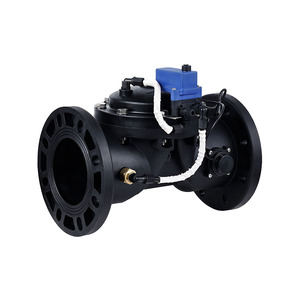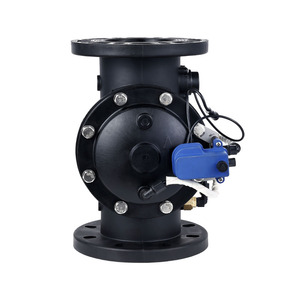
All categories
Featured selections
Trade Assurance
Buyer Central
Help Center
Get the app
Become a supplier

(34313 products available)






































The types of water meter 6 are as follows:
Mechanical Water Meters
Water usage is measured by mechanical water meters 6 that revolve on segment type, gauge type, and turbine type. The meter's internal parts rotate or move in response to water flow in segmental piston meters. It permits water to flow through the segments, which measure the flow rate and thus usage. For the gauge-type meters, the flow of water causes the vanes of the paddle to revolve in turbine meters, and water moves through a restricted area that causes the vanes to spin in positive displacement meters. These meters are applied frequently in homes and small businesses because they are reasonable and easy to install. For providing good accuracy at low and normal flow rates, mechanical meters are suitable.
Electronic Water Meters
Electronic water meters use sensors to measure water flow and convert the data into an electronic format. These meters are known for their high accuracy and ability to measure low flow rates, making them ideal for residential applications. Features like remote reading and digital displays make them user-friendly. Professionals can easily install and monitor these meters. Electronic water meters have become popular for their efficiency and technology integration.
Smart Water Meters
A type of electronic water meter is smart water meters. They are connected to the Internet, enabling constant monitoring, data analysis, and remote checking. Due to this real-time data availability, quick decision-making is possible for both users and utility administrators. Smart meters promote better water conservation techniques by assisting in detecting leaks and irregularities in flow. Their appeal in the contemporary water metering system increases because of their advanced characteristics and efficiency.
Ultrasonic Water Meters
This type of meter works by measuring the time it takes for ultrasonic waves to travel through the water. They offer high accuracy and can measure a wide range of flow rates without any moving parts. Ultrasonic water meters are suitable for measuring the flow in large pipelines and industries due to their non-invasive, durable, and reliable nature.
Coefficient of Differential Pressure Water Meters
Cdp
Water meter is also known as a differential pressure, d/p, or Δp meter. This meter works by measuring the pressure difference across a flow restriction or orifice. They are primarily used to measure the flow of liquids, gases, and steam in a pipeline. These meters include features like flow rate calculation based on pressure drop, applicability in diverse industrial settings, and comparison with other flow measurement technologies.
The characteristics of water pressure meter are as follows:
Accuracy and Precision
Water meters are designed to provide accurate measurements of water flow and usage. Many modern devices are equipped with technology to ensure precise readings, even at low or variable flow rates. The accuracy is vital for billing, resource management, and detecting leaks.
Durability
Water meters must be sturdy enough to survive different environmental situations, including pressure, temperature, and weathering. Most are built of robust materials, including brass, stainless steel, and reinforced plastics, which can withstand these circumstances for many years.
Compliance with Industry Standards
They are made to conform with regional and international rules and standards. Some common standards include ISO certifications and regional water authority requirements. Adherence to such standards guarantees measurement accuracy, reliability, and user safety.
Ease of Installation and Maintenance
The effectiveness of the system is determined by how easily the water flow meters are installed and maintained. A large portion of water meters is made easy to install, needing minimum specialized work. In addition, infrequent maintenance requirements are another critical feature, enabling longer operation with little interruption.
Cost-Effectiveness
The cost of acquiring and maintaining the water meters is reasonable. Although advanced technologies such as smart or electronic meters may have higher initial costs, their long-term benefits, such as reduced bills and precise measurements, make them cost-effective in the duration of their life cycle.
The commercial uses of smart water meter are as follows:
Water Utility and Billing Systems
The primary use of water pressure is in estimating the flow and usage for water utilities. The residential and commercial customers are provided with precise billing by storing and transmitting data. With proper accuracy, it minimizes disputes over bills and increases revenue collection for the utility companies.
Agricultural Irrigation Systems
In agriculture, water meters measure irrigation system applications of water extraction rates from sources like rivers and the amount of water used for crop production. They assist farmers in managing irrigation efficiently, conserving water, and preventing overuse, which could lead to resource depletion.
Industrial Process Monitoring
Water is a critical component in industries, from manufacturing to chemical processing. Water meters track the water usage of industries, helping them to monitor their consumption, manage costs, and reduce waste. They are vital in maintaining compliance with environmental regulations by preventing overuse or contamination of water resources.
Commercial Property Management
In commercial real estate, water meters are used to manage water consumption in buildings, from offices to retail spaces. They enable property managers to monitor usage, detect leaks, and maintain costs. This is especially important for sustainability practices, where water conservation is a big concern.
Construction and Project Development
Water meters measure water usage when construction activities involve washing, cement production, and cooling. They help construction companies manage their water usage, avoid fees, and lessen their effects on nearby water supplies. Furthermore, they guarantee adherence to regulations on water use and quality.
The factors when choosing irrigation line water meters are as follows:
Water Meter Type
Commercial buyers should consider the type of water meter calibration they intend to purchase based on the requirements. Available options include mechanical water meters, electronic water meters, smart water meters, and ultrasonic water meters. Each kind differs in accuracy, ease of use, and suitability for particular applications in flow measurement.
Accuracy and Range
The accuracy of the water meter must be at the acceptable standard levels, and the flow range should be appropriate for the intended application. Be concerned about the meter's rated accuracy since billing or regulatory adherence standards may require it. Also, the meter's capacity to handle variable flow rates enables it to maintain performance in fluctuating conditions.
Compatibility with Pipe Size
The selected water meter must be compatible with the existing pipe infrastructure in use. Meters must be set up to work seamlessly without major adjustments or replacements, as they come in various sizes.
Material and Build Quality
The Water meter construction materials which impact the durability, and quality of the device are worth noting. The meters manufactured using brass, stainless steel, or high-grade plastics provide resilience against corrosion, wear, and harsh environmental factors. As such, select a meter that will last in a given situation for many years.
Certification and Standards
Select water measurement devices bearing the required industry certifications and standards. This includes ISO standards or approvals from regulatory authorities. Such certifications are an indication of accuracy, reliability, and compliance with legal requirements.
Maintenance and Service
The ease of maintenance and customer service support where required are important factors. Consider what the manufacturer specifies regarding maintenance frequency and durability of components. Further, assess the availability of customer service resources to assist with possible issues.
Electronic water meters measure water flow using sensors and convert the flow data electronically. This allows them to offer superior precision, particularly at low flow rates and better functionality like remote reading. Mechanical water meters are practical because they are cheaper and simpler to install despite modern features.
Smart water meters are advanced electronic meters that transmit usage data wirelessly for real-time monitoring and analysis. They support remote readings, improve billing accuracy, and quickly identify leaks or inefficiency.
The primary function of water meters is to measure the volume of water flowing through pipes, but some meters, like temperature-compensated or certain electronic meters, can measure water temperature through built-in sensors. This can be useful in specific applications like heating systems or in environments where temperature affects the flow characteristics of water.
Yes, Water meters, especially when coupled with smart technology, can help conserve water by providing detailed insights into consumption patterns. They can identify leaks, track usage in real time, and inform users when they are over or under consumption. This allows both residential and commercial users to adjust their practices to save more water.